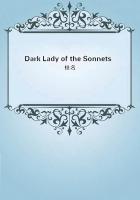They assume the right of the Senate to sit in judgement upon the exercise of my exclusive discretion and executive function, for which I am solely responsible to the people from whom I have so lately received the sacred trust of office.My oath to support and defend the Constitution, my duty to the people who have chosen me to execute the powers of their great office and not relinquish them, and my duty to the chief magistracy which I must preserve unimpaired in all its dignity and vigor, compel me to refuse compliance with these demands."There is a ringing quality in the style of this message not generally characteristic of President Cleveland's state papers.
It evoked as ringing a response from public opinion, and this effect was heightened by a tactless allusion to the message made at this time in the Senate.In moving a reference of the message to the Judiciary Committee, its chairman, Senator Edmunds of Vermont, remarked that the presidential message brought vividly to his mind "the communication of King Charles I to the Parliament, telling them what, in conducting their affairs, they ought to do and ought not to do." The historical reference, however, had an application which Senator Edmunds did not foresee.It brought vividly to mind what the people of England had endured from a factional tyranny so relentless that the nation was delighted when Oliver Cromwell turned Parliament out of doors.It is an interesting coincidence that the Cleveland era was marked by what in the book trade was known as the Cromwell boom.Another unfortunate remark made by Senator Edmunds was that it was the first time "that any President of the United States has undertaken to interfere with the deliberations of either House of Congress on questions pending before them, otherwise than by message on the state of the Union which the Constitution commands him to make from time to time." The effect of this statement, however, was to stir up recollections of President Jackson's message of protest against the censure of the Senate.
The principle laid down by Jackson in his message of April 15, 1834, was that "the President is the direct representative of the American people," whereas the Senate is "a body not directly amenable to the people." However assailable this statement may be from the standpoint of traditional legal theory, it is indubitably the principle to which American politics conform in practice.The people instinctively expect the President to guard their interests against congressional machinations.
There was a prevalent belief that the Senate's profession of motives, of constitutional propriety, was insincere and that the position it had assumed would never have been thought of had the Republican candidate for President been elected.A feeling that the Senate was not playing the game fairly to refuse the Democrats their innings was felt even among Senator Edmunds' own adherents.A spirit of comity traversing party lines is very noticeable in the intercourse of professional politicians.Their willingness to help each other out is often manifested, particularly in struggles involving control of party machinery.
Indeed, a system of ring rule in a governing party seems to have for its natural concomitant the formation of a similar ring in the regular opposition, and the two rings maintain friendly relations behind the forms of party antagonism.The situation is very similar to that which exists between opposing counsel in suits at law, where the contentions at the trial table may seem to be full of animosity and may indeed at times really develop personal enmity, but which as a general rule are merely for effect and do not at all hinder cooperation in matters pertaining to their common professional interest.
The attitude taken by the Senate in its opposition to President Cleveland jarred upon this sense of professional comity, and it was very noticeable that in the midst of the struggle some questionable nominations of notorious machine politicians were confirmed by the Senate.It may have been that a desire to discredit the reform professions of the Administration contributed to this result, but the effect was disadvantageous to the Senate."The Nation" on March 11, 1886, in a powerful article reviewing the controversy observed: "There is not the smallest reason for believing that, if the Senate won, it would use its victory in any way for the maintenance or promotion of reform.In truth, in the very midst of the controversy, it confirmed the nomination of one of Baltimore's political scamps." It is certainly true that the advising power of the Senate has never exerted a corrective influence upon appointments to office; its constant tendency is towards a system of apportionment which concedes the right of the President to certain personal appointments and asserts the reciprocal right of Congressmen to their individual quotas.
As a result of these various influences, the position assumed by the Republicans under the lead of Senator Edmunds was seriously weakened.When the resolutions of censure were put to the vote on the 26th of March, that condemning the refusal of the Attorney-General to produce the papers was adopted by thirty-two ayes to twenty-six nays--a strict party vote; but the resolution declaring it to be the duty of the Senate in all such cases to refuse its consent to removals of suspended officials was adopted by a majority of only one vote, and two Republican Senators voted with the Democrats.The result was, in effect, a defeat for the Republican leaders, and they wisely decided to withdraw from the position which they had been holding.Shortly after the passage of the resolutions, the Senate confirmed the nomination over which the contest started, and thereafter the right of the President to make removals at his own discretion was not questioned.















